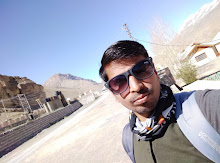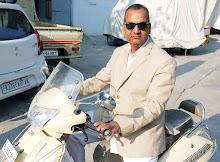During
the last hundred year, advance in
Science and Technology have profoundly modified human existence, both at the individual and social levels. No aspect of our lives has been left
untouched, and no one can remain aloof from the flood of technological
innovations, which has become the
hallmark of our present times.
We
can anticipate further developments in science which may perhaps prove to be of far greater significance for us: genetic
engineering and human cloning, voyage
into outer reaches of space, safe nuclear energy, super computers with artificial intelligence and others still
beyond the imagination of the common
man.
At the same
time, life on earth is not necessarily becoming any happier because of
these technological advances. Apparently, the basic nature of man,
his biological make up, his emotions and social behaviour cannot keep
pace with these rapid changes in his surroundings. A
pattern or system that has slowly evolved through hundreds of years, cannot adjust to these extra-ordinary changes we ourselves
are producing daily in the
environment through science and
technology,
Human
beings everywhere, both in the developed and developing countries are coming
under great stress, Extreme competition to excel in one’s career, relentless
pursuit of money and power, the race
against time, ever increasing violence
are making life unhappy even amidst
material abundance of all sorts.What may be called Diseases of
life-style are rapidly replacing the common communicable diseases of the past.
We may be living longer, but with the
constant fear of being struck down with blood pressure or
heart attack, depression or diabetes in the prime of youth.
The great
French surgeon and philosopher, Alexis Carrel, a Nobel Laureate in
Medicine, had warned us about
this way back
in the 1930s. His beautiful and
prophetic words:
‘‘Apparently, there
is no adaptation possible to ceaseless agitation, intellectual
dispersion, alcoholism, precocious
sexual excesses, noise, polluted air and adulterated food. If
such is the
case, we must modify
our mode of life
and our environment,
even at the cost
of a destructive revolution. After all,
the purpose of civilization is not
the progress of machines but the
progress of man.’’
What then
is the solution?
A ray of
hope lies in our Spirituality - the quest for peace and
moral values.But today,
perhaps, the mere preaching
of these
values may not
do.
We will
have to use the tools for science itself -Scientific temper and
scientific objectivity, rational thinking,
an unbiased analysis of all
existing information, only then we
will be
able to come out with a
workable plan acceptable to all.
Many great
persons, driven by their concern
for human welfare have from time to time evolved such
visions of how
man should live, how human society should be managed. One such
popular way is being
shown by the Brahmakumaris movement,
Yet, some vital
questions require deep study and analysis:
1. What exactly do different people understand by Spirituality? How to define Spirituality in modern terms?
2. How can Spirituality be interpreted in the context of our existing knowledge of the barin and its neuro-physiological functioning?
3. How can Spiritual health be explained so that it can be included in the comprehensive definition of health as accepted by the WHO?
4. What are the common points of convergence amongst the various systems of spiritual emancipation?
5. Can we evolve a common system or scheme for promoting Spirituality, which would be readily and spontaneously acceptable to all, irrespective of their religious beliefs?
6. If Spirituality is desirable for human welfare today and in the future, then how can it be promoted on a large enough
scale? Should it be left to individual choice, or offered only as a sort
of hobby for the elderly Or can it be integrated
in the universal system of education and upbringing of every child? How
can that be achieved?
Schools were in the
past (and even today) providing children MENTAL experience
through books. Time and again the need has been felt for
providing MANUAL
Experience as well through physical
labour (eg Gandhiji’s concept of Basic
Education) The future demands that
a third component
be added to education: MORAL experience. How can that be done?
Looking ahead, one feels that Human Welfare lies in the synthesis of Science and Spirituality. The two should be seen as complimentary to each other and not as antagonistic. Science tells how a thing can be done. Whether it would be proper to do it or not cannot be decided by Science. As Einstein had remaked the great problem of our times is to find morality in our actions. Many eminent Indian scientists have also dreamt of an integration of Science and Spirituality for human welfare.
You are whole heartedly welcome to
Prajapita Brahma Kumaris Ishwariya Vishwa Vidyalaya

.jpg)
.jpg)




